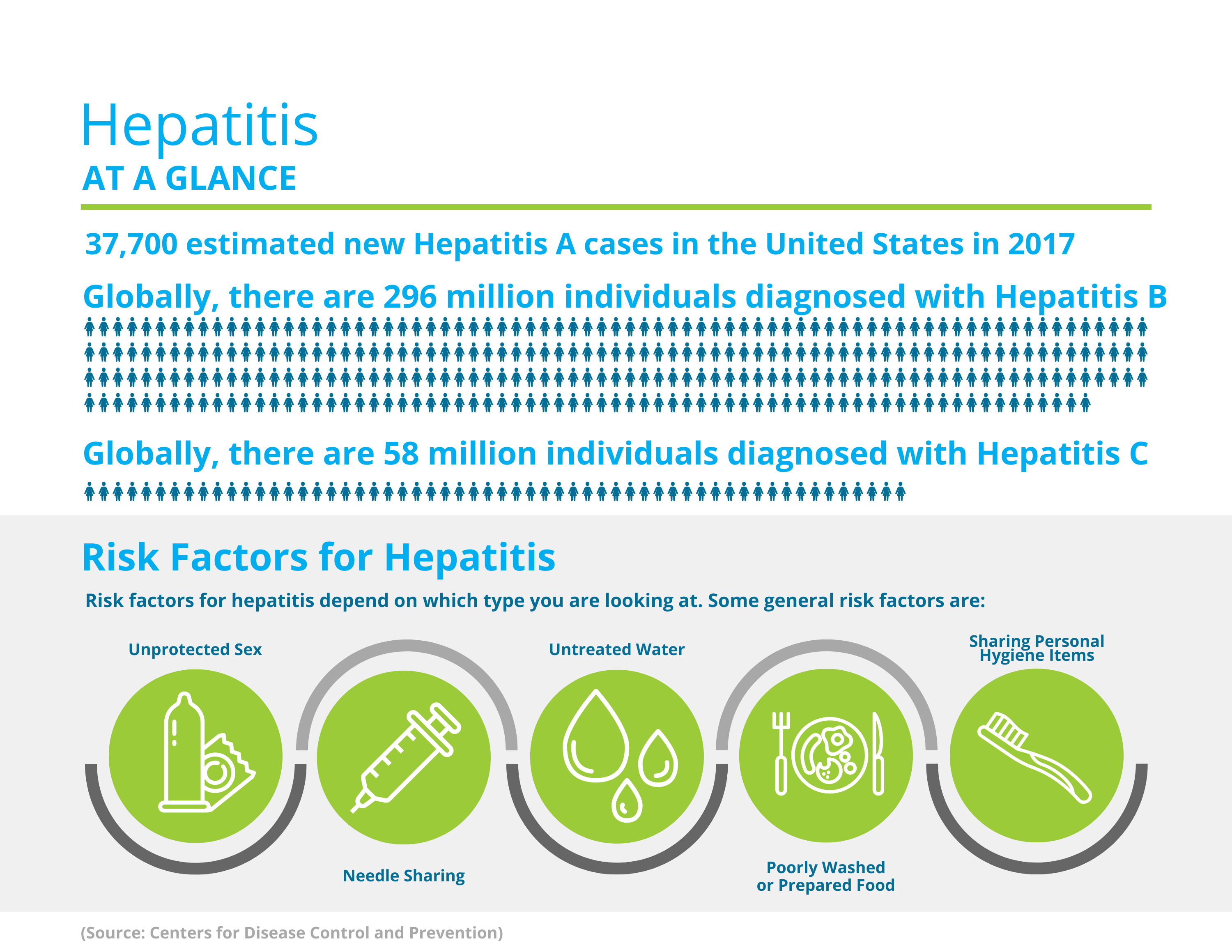
General Hepatitis Information
Hepatitis means swelling of the liver. There are five forms of hepatitis: Hepatitis A, Hepatitis B, Hepatitis C, Hepatitis D, and Hepatitis E. In the United States the most common forms of hepatitis are A, B, and C. Hepatitis is often caused by a virus, therefore antibiotic medication for treatment is not effective. Sometimes Hepatitis can also be caused by toxins, medical history, or excessive alcohol use.
For more information: https://www.cdc.gov/hepatitis/abc/index.htm
Hepatitis A causes about 24,900 new infections yearly across the United States. Hepatitis A is generally spread through fecal matter. For example, if a restaurant employee uses the restroom and does not wash their hands thoroughly prior to returning to making and serving food. Hepatitis A can cause symptoms that last for a few weeks to a few months. There is an effective vaccine that can be administered. Speak with your doctor to see if a hepatitis A vaccine is recommended for you. The main treatment for Hepatitis A is supportive therapy, however some doctors may add medications or supplements.
New Hepatitis B infections are about 22,600, with roughly 862,000 US residents living with Hepatitis B. Hepatitis B can often be asymptomatic. Liver cancer can be caused by Hepatitis B. Illness duration ranges from a few weeks up to a lifelong infection. Hepatitis B can be spread by body fluids through childbirth, sexual intercourse, sharing razors, using used needles, or poor infection control. There is a vaccine available for Hepatitis B. Speak with your doctor to see if the Hepatitis B vaccine is recommended for you. Generally, there is no treatment for Hepatitis B, other than supportive care. However, your doctor may prescribe an antiviral medication. Talk with your doctor to see if you need to be tested for Hepatitis B.
Hepatitis C has about 50,300 new cases yearly, and an estimated 2.4 million people living with Hepatitis C in the United States. A known cause of liver cancer and liver transplants is Hepatitis C. The duration of illness for Hepatitis C is a few weeks up to a lifelong chronic infection. Generally, most Hepatitis C cases will progress into chronic cases. Hepatitis C can be spread to others by childbirth, sharing needles, reusing objects with contaminated blood, receiving blood or organ transplant prior to 1992, and poor infection control. Currently, there is not a vaccine that is specified for Hepatitis C. Treatment for Hepatitis C includes supportive care and medications. Speak with your doctor about your risk for Hepatitis C, and if you should be tested.


